The views expressed in our content reflect individual perspectives and do not represent the authoritative views of the Baha'i Faith.
Because of his teachings of unity and peace, Baha’u’llah, the prophet and founder of the Baha’i Faith, suffered exile and imprisonment for more than forty years. For many of those years, he was homeless.
“He remained there, chained to the wall with his feet in stocks, for four months”
In 1852, when Baha’u’llah was a young man of 35, the Persian government unjustly threw him and other followers of the Bab – the precursor and herald of the Baha’i Faith – into a notorious dungeon known as the Black Pit in Tehran. He remained there, chained to the wall with his feet in stocks, for four months. Previously from a prosperous family, Baha’u’llah not only lost his freedom in that dungeon, but at the same time lost all his possessions along with his ancestral home and the village that surrounded it:
In the village of Takur, in the district of Nur, [Baha’u’llah’s] sumptuously furnished home, inherited from His father, was, by order of Mirza Abu-Talib Khan, nephew of the Grand Vizir, completely despoiled, and whatever could not be carried away was ordered to be destroyed, while its rooms, more stately than those of the palaces of Tihran, were disfigured beyond repair. Even the houses of the people were leveled with the ground, after which the entire village was set on fire. – Shoghi Effendi, God Passes By
Sentenced to life in prison, the government nevertheless released Baha’u’llah in December of 1852 after Prince Dolgorouki, the Russian Minister to the government of Persia, intervened on his behalf. Baha’u’llah moved his family to a rented house, but only lived there for a month, attempting to recuperate from his imprisonment and torture. During that period Baha’u’llah learned that an edict from the Shah had banished him from Persia forever, so he prepared for his exile to Baghdad, in what was then the Turkish province of Iraq.
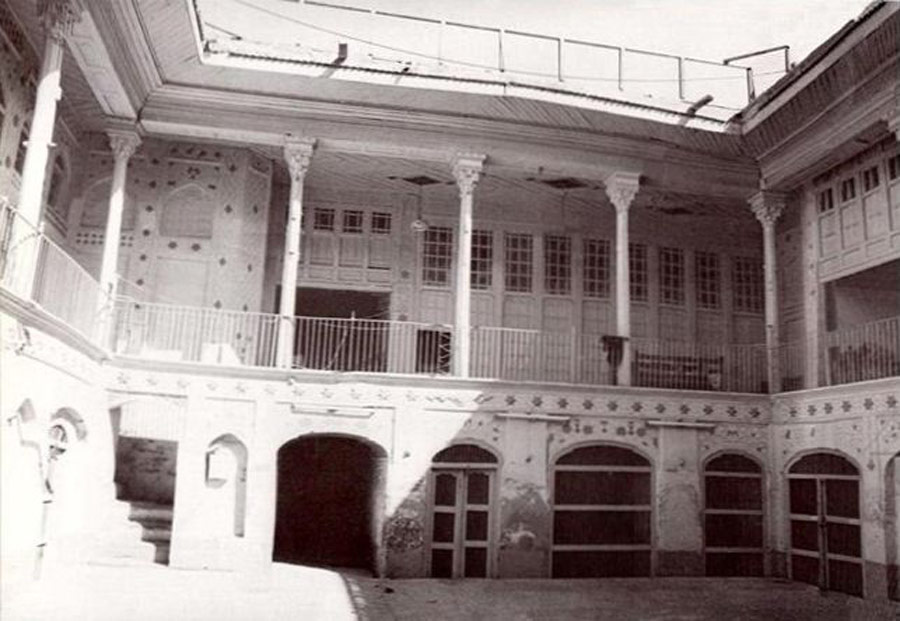
After an arduous three-month overland trip on foot and horseback in the middle of winter, Baha’u’llah and his family settled in a house in Baghdad, and lived a relatively peaceful life there for the next year. But in 1854, Baha’u’llah left his home to go on foot to the wilderness of the northern Kurdistan mountains, where he lived in the open and in caves for two years as a homeless, wandering dervish:
After remaining there [in Baghdad] for one year [Baha’u’llah] withdrew His hand from all things, abandoned relatives and connections, and, without the knowledge of His followers, quitted Iraq alone and solitary, without companion, supporter, associate, or comrade. For nigh upon two years He dwelt in Turkish Kurdistan, generally in a place named Sar-Galu, situated in the mountains, and far removed from human habitations. – Abdu’l-Baha, A Traveller’s Narrative
Baha’u’llah chose those two years of privation and homelessness to remove himself from any conflict among the Babis, and, in the long tradition of previous prophets, to commune with his own heart:
In the early days of Our arrival in this land [Baghdad], when We discerned the signs of impending events, We decided, ere they happened, to retire. We betook Ourselves to the wilderness, and there, separated and alone, led for two years a life of complete solitude. From Our eyes there rained tears of anguish, and in Our bleeding heart there surged an ocean of agonizing pain. Many a night We had no food for sustenance, and many a day Our body found no rest. By Him Who hath My being between His hands! notwithstanding these showers of afflictions and unceasing calamities, Our soul was wrapt in blissful joy, and Our whole being evinced an ineffable gladness. For in Our solitude We were unaware of the harm or benefit, the health or ailment, of any soul. Alone, We communed with Our spirit, oblivious of the world and all that is therein. – Baha’u’llah, The Book of Certitude
… [Baha’u’llah] was then in Kurdistan, living in a cave at Sar-Galu; and there, entirely alone in that wasteland, with no companion, no friend, no listening soul, He was communing with the beauty that dwelt in His own heart. – Abdu’l-Baha, Memorials of the Faithful
When Baha’u’llah returned to his house in Baghdad in 1856, he set his sights on re-uniting and re-vivifying the Babi community, and expended his energies on those tasks for the next seven years. Then, in 1863 he was banished into exile again, and five years later was sentenced to the Ottoman Empire’s worst penal colony, Akka, on the shores of the Mediterranean in distant Palestine.
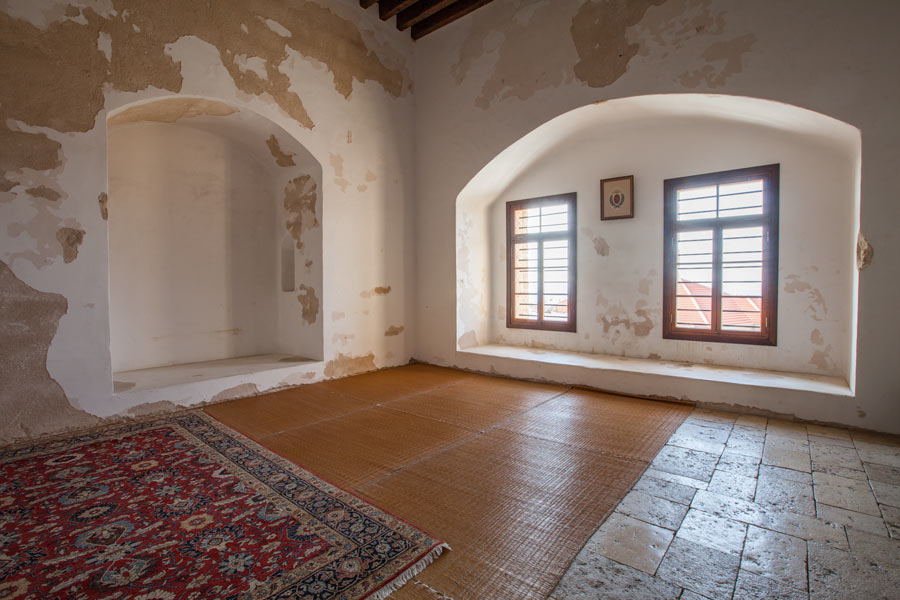
For another nine years – from 1868 to 1877 – the rulers of the Ottoman Empire confined Baha’u’llah within the walls of that pestilential prison-city. Finally, though, the guards relented and his son Abdu’l-Baha helped secure a change in his father’s status to house arrest. Abdu’l-Baha rented Baha’u’llah and the family a house outside Akka’s walls, where Baha’u’llah lived for two years until 1879. Then Baha’u’llah spent the last years of his life until his passing in 1892, still under house arrest, in a large rural home at Bahji, a few miles from Akka. Today Baha’is from all over the planet make pilgrimages to that sacred spot, to pray and meditate at the threshold of Baha’u’llah’s resting place within.

So Baha’u’llah – the founder of the world’s newest and second-most widespread global religion – lived a considerable portion of the last half of his life as a homeless prophet. Jailed, tortured, poisoned, exiled and impoverished, he consciously and altruistically lived that incredibly hard life solely for the benefit of humankind:
… may all your intentions center in the welfare of humanity, and may you seek to sacrifice yourselves in the pathway of devotion to mankind. Even as Jesus Christ forfeited His life, may you, likewise, offer yourselves in the threshold of sacrifice for the betterment of the world; and just as Baha’u’llah suffered severe ordeals and calamities nearly fifty years for you, may you be willing to undergo difficulties and withstand catastrophes for humanity in general. – Abdu’l-Baha, The Promulgation of Universal Peace


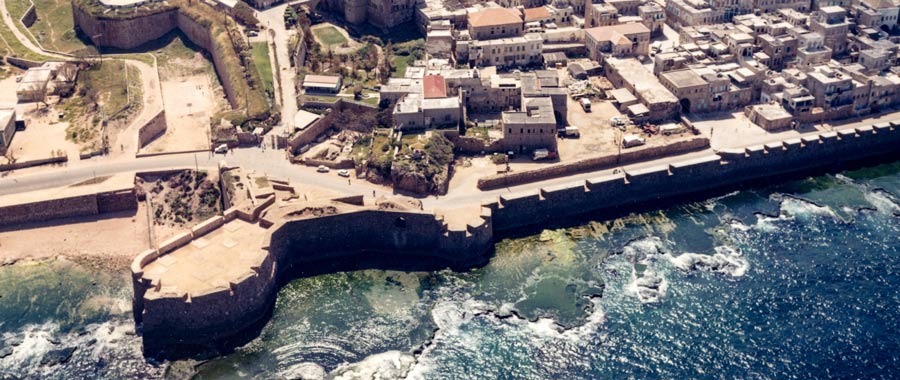

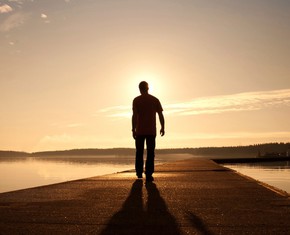

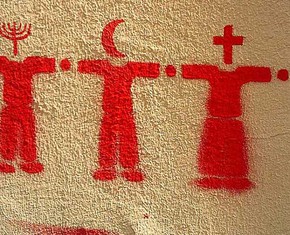









Comments
Sign in or create an account
Continue with Googleor